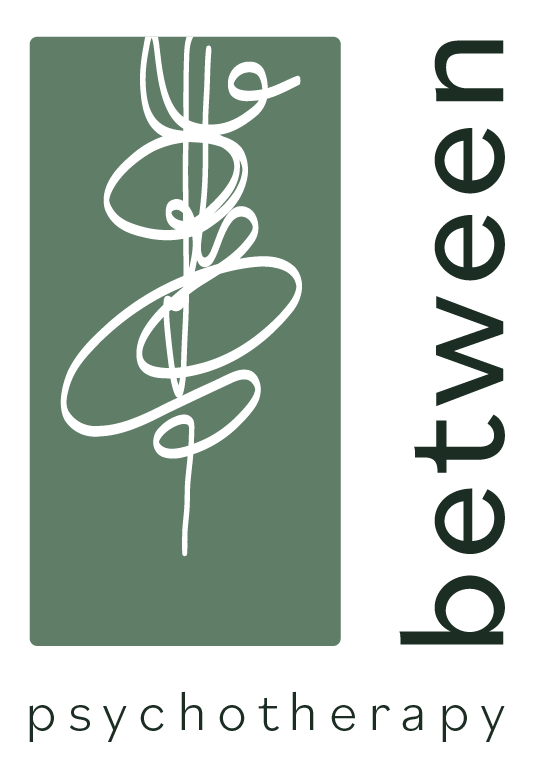
Neurodiversity is a term used to recognize that people think, learn, and interact with the world in a variety of ways.
Neurodivergence is a term used to describe types of neurocognitive functioning that significantly diverges from society’s standards of “normal.” The most commonly recognized types of neurodivergence include autism spectrum disorder (ASD), attention deficit hyperactivity disorder (ADHD), sensory processing differences (SPD), and specific learning differences (SLD) such as dyslexia.
At Between do not consider these differences deficits, but we understand that when your brain works differently than more neurotypical brains, you will probably experience obstacles and frustrations at school, work, social relationships, and home.
The way we often see these difficulties present are…
-
• Partners, parents, and families struggling to effectively love and support their neurodivergent loved one without making them the identified patient.
• Exasperated parents knowing something is going on with their child, but they have been dismissed by their doctor or school, and they just don’t have the energy to keep fighting alone.
• A recent diagnosis leaves you completely overwhelmed and unsure about next steps and where to find resources.
• Navigating the grief and the relief that comes with a diagnosis.
• Feeling alone and misunderstood, and exhausted from trying to make your brain work “like everyone else’s.”
-
• You have a child with ASD or ADHD and find that they are being mistreated at school by peers or even teachers.
• Your child/children are exceptionally difficult, and you find yourselves secretly feeling hatred toward them, quickly followed by shame and grief. You cannot go on living this with with your child, but have no idea what to do differently.
• Despite time and money spent on an evaluation for your child, you find yourself without a diagnosis, and you are completely confused and stuck.
We offer ourselves a safe landing- a place where you can be understood, supported, validated, and educated about neurodiversity.
We can help connect you to resources when needed, and in general, undo the feelings of aloneness that often accompany individuals, couples, and families on this journey. We know that different individuals and families need different things, so we offer support in a variety of ways.
At Between, we reject ableism, and we recognize the ways that society does not properly support, embrace, and allow for the differences in how our brains work.
We provide support, guidance, and resources, walking alongside you as you navigate a life that has become (or always has been) too difficult, through no fault of your own. We have our own stories with neurodivergence, and approach your care not just from a clinical lens, but also from a human one.
We support families with neurodivergent children…
-
We recognize that connection to loved ones is invaluable for children. When one or more children in the home is neurodivergent, there is another layer to navigate and connection becomes even more important to maintaining regulation and emotional safety. Parenting is always challenging, but the experience of parenting neurodivergent children is unique, and largely unsupported by our culture. At Between, we focus on the problematic relational dynamics, rather than identifying problem people or children. Instead of giving you ideas of what to try at home with your child, we join you in facing what is hard, and work with you to change the relational dynamics that are preventing your family from operating optimally.
-
Couples with neurodivergent children tend to have more relational issues. It makes sense, as children with disabilities put stress on time, money, and emotional energy. By strengthening the relationship between you and your partner, you are better able to navigate the joys and challenges of your home life. Our goal is to help you create a dynamic of nurturing and supporting each other, with the goal of undoing how alone you might feel.
-
Especially for teenagers, individual therapy can be a way for your child to experience focused support and attention. In the safety of the therapy room, they can explore relational closeness without the pressure of following neuro-typical norms. Our therapists provide a safe place for clients to learn more about their needs, and where and how to get those needs met. We support your child as they creatively work with both the strengths and weaknesses of their diagnosis (or diagnoses), allowing them to go into the world with more resilience.
We support couples where one or more partner is neurodivergent…
Many times couples know about a diagnosis in one or both partners, but they do not have an adequate understanding of the emotional and relational ramifications of that diagnosis. We work with you to strengthen the emotional bond between the couple, while also holding a strong working knowledge of the way that neurodiversity can impact a couple’s ability to connect and work together well as partners.
We support neurodivergent individuals…
Whether newly diagnosed, exploring a possible diagnosis, or simply wanting support provided by a therapist educated in and affirming of neurodivergence, we are able to meet you at wherever you are as a neurodivergent individual. We understand at a personal level what it’s like to exist in a world that does not understand neurodivergence and know that the experience can induce shame, loneliness, overwhelm, and burnout. Our desire is to meet you where you are, rather than expecting you to adjust to neurotypical demands.
If you find that the hardest part of being neurodivergent is your internal struggle, then we want to support you there as well, offering care and support and helping you get unstuck in the context of a relationship that sees your strengths as clearly as your limitations.
“The most interesting people you’ll find are ones that don’t fit into your average cardboard box. They’ll make what they need. They’ll make their own boxes.”
Dr Temple Grandin

Take the first step.
If you’re interested in speaking to a therapist at Between Psychotherapy, please request an appointment below.





